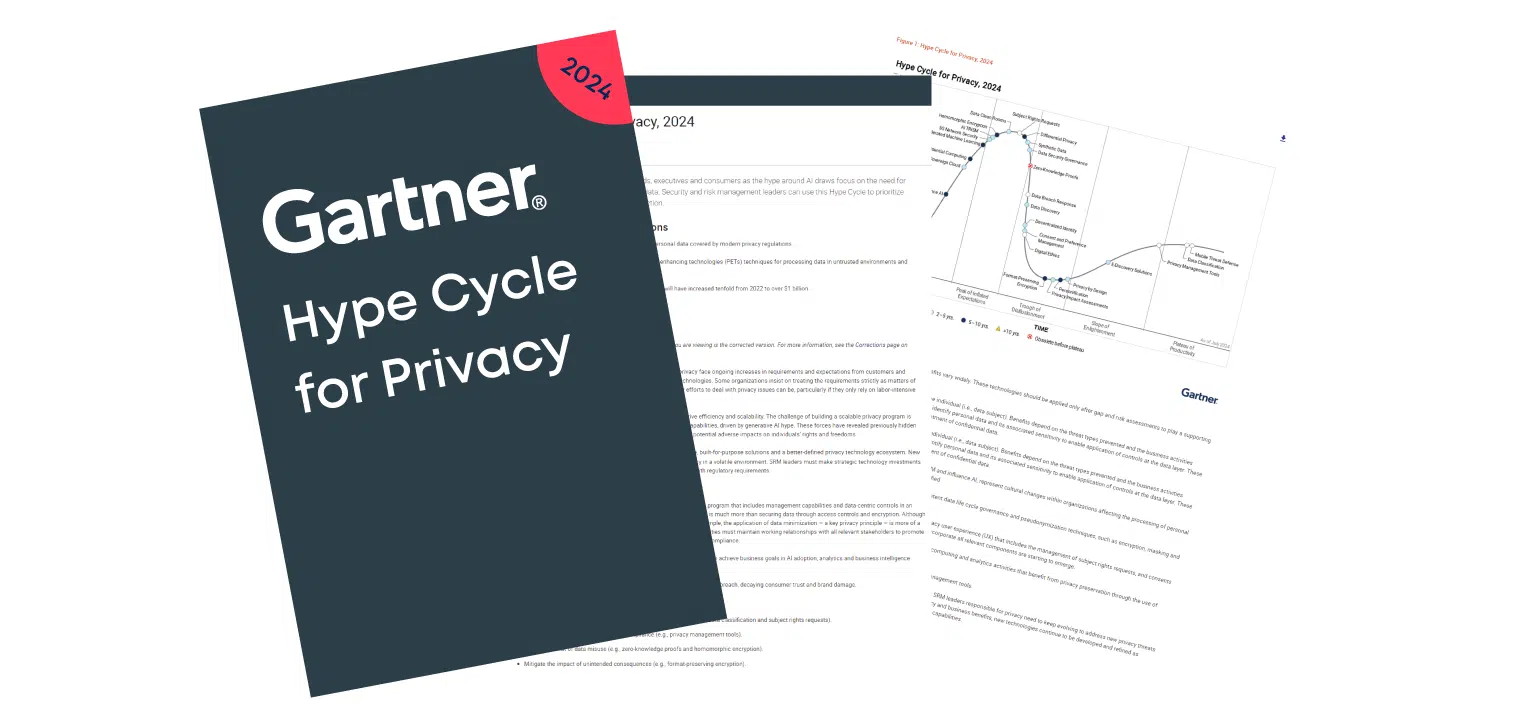The role of privacy in Higher Education
Posted: August 27, 2024
The role of privacy in higher education
Privacy has become a cornerstone of our daily lives, influencing how we interact, work, and learn. As higher education institutions continue to integrate technology into their curricula and operations, the importance of privacy cannot be overstated. This blog explores why privacy is essential in higher education and how institutions can prioritize it, with a particular focus on future privacy professionals.
Why we care about privacy in higher education
As a consent and preference management company, we understand the critical role that privacy plays in building trust and ensuring compliance with global regulations. Our mission is to help organizations manage and protect personal data effectively whilst ensuring a close relationship with all stakeholders of the university. Higher education institutions, which handle vast amounts of sensitive information, are no exception. By advocating for stronger privacy practices and education, we aim to support these institutions in safeguarding their communities and building a culture of privacy awareness.
The growing importance of privacy
Privacy is no longer just a legal or ethical concern; it is a fundamental human right recognized globally. With over 160 countries enacting comprehensive privacy laws, the landscape of privacy regulation is expanding rapidly. In the United States alone, nearly three dozen federal laws address various aspects of privacy, and a wave of state-level legislation is further shaping the field.
Privacy in the academic environment
Higher education institutions are custodians of vast amounts of sensitive data, including personal information of students, faculty, and staff. This data ranges from academic records and financial information to health records and personal communications. Protecting this data is not only a legal obligation but also a moral imperative to maintain trust and integrity within the academic community.
The role of privacy law education
Despite the importance of privacy, many law schools lack dedicated faculty and comprehensive courses on privacy law, with the University of Auckland being the first to have graduates with Master of Information Governance . This gap in education leaves potential future privacy professionals unprepared to tackle the complex privacy issues that arise in various legal contexts, from litigation and compliance to public policy and advocacy.
Why universities should act now:
- Expanding legal landscape: With the rapid growth of privacy laws and regulations, there is an increasing demand for legal professionals who specialize in privacy law. HEI’s must adapt their curricula to include more courses and faculty focused on this area to meet the market demand.
- Technological advancements: Emerging technologies such as artificial intelligence (AI) and big data analytics pose new privacy challenges. Legal professionals need to understand these technologies and their implications for privacy to provide effective counsel and advocacy.
- Job opportunities: The field of privacy law offers numerous career opportunities. From roles in top law firms and corporations to positions in government and non-profits, the demand for privacy law experts is on the rise. Universities that prioritize privacy law education can better prepare their students for these opportunities.
- Interdisciplinary collaboration: Privacy issues often intersect with other fields such as cybersecurity, healthcare, and business. Law schools can deliver interdisciplinary collaboration by integrating privacy law into various programs and encouraging joint research initiatives.
Steps for law schools
To address the growing need for privacy law education, universities should consider the following actions:
Hire specialized faculty:
- Increase faculty numbers: Law schools should actively recruit and hire additional faculty members who have specialized knowledge and expertise in privacy law and related fields such as data protection, cybersecurity, and AI ethics. This will ensure that students receive a comprehensive education that covers all critical aspects of privacy law.
- Interdisciplinary expertise: It is important to seek candidates with interdisciplinary expertise, combining legal knowledge with technological understanding. This approach will provide students with a well-rounded education that integrates legal principles with the latest technological advancements and challenges.
- Professional development: Law schools should invest in ongoing professional development opportunities for existing faculty members. This can include attending conferences, participating in workshops, and engaging in continuous learning to stay updated on the latest trends, developments, and best practices in privacy law.
Expand course offerings:
- Diverse curriculum: Develop a comprehensive and diverse curriculum that includes a wide range of courses covering various aspects of privacy law. This should encompass information privacy, AI, cybersecurity, comparative privacy law, and emerging technologies. Offering a broad spectrum of courses will allow students to gain in-depth knowledge and understanding of different areas within privacy law.
- Practical training: Incorporate practical training opportunities into the curriculum, such as clinics, internships, and moot court competitions focused on privacy law. These hands-on experiences will enable students to apply theoretical knowledge in real-world scenarios, enhancing their practical skills and preparing them for future careers in privacy law.
- Guest lectures and workshops: Invite industry experts, practitioners, and thought leaders to deliver guest lectures and conduct workshops. This will provide students with valuable insights into current industry practices, emerging trends, and real-world challenges. Additionally, it will offer networking opportunities and expose students to different perspectives within the field of privacy law.
Promote research and scholarship:
- Research initiatives: Establish dedicated research centers or initiatives focused on privacy law. These centers can serve as hubs for innovation, thought leadership, and collaborative research projects. By fostering a research-oriented environment, law schools can contribute to the advancement of privacy law and address current and future challenges in the field.
- Publication opportunities: Encourage faculty and students to publish their research findings in reputable journals and participate in academic conferences. This will not only enhance the visibility and impact of their work but also contribute to the broader academic community and the development of privacy law as a discipline.
- Collaborative projects: Promote collaborative research projects between faculty, students, and external organizations. By partnering with industry, government agencies, and non-profit organizations, law schools can address real-world privacy law challenges and develop innovative solutions. Collaborative projects also provide students with valuable experience and exposure to different sectors and stakeholders.
Leverage funding opportunities:
- Grant applications: Actively seek grants and funding from governmental bodies, private foundations, and industry partners that support privacy and technology research. Law schools can use these funds to develop new programs, initiatives, and research projects focused on privacy law. Securing external funding will enable law schools to expand their offerings and resources in this critical area.
- Partnerships: Form partnerships with technology companies, law firms, and non-profit organizations to secure funding and resources for new programs and initiatives. These partnerships can provide financial support, access to expertise, and opportunities for collaborative projects. By leveraging external partnerships, law schools can enhance their capacity to deliver high-quality privacy law education.
- Scholarships and fellowships: Use funding to create scholarships and fellowships for students specializing in privacy law. These financial incentives will encourage more students to pursue careers in privacy law and support their academic and professional development. Scholarships and fellowships can also attract top talent to the law school and contribute to the growth of the privacy law field.
Leading the charge in privacy education
As privacy continues to evolve as a critical issue in our society, higher education institutions have a responsibility to lead the way in privacy education. By prioritizing privacy law in their curricula and faculty hiring, law schools can equip the next generation of legal professionals with the knowledge and skills needed to navigate the complex privacy landscape. This approach not only benefits students but also strengthens the institution’s reputation and its contributions to the broader legal and academic community. Future graduates, well-versed in privacy education, can advocate for stronger privacy protections and help shape policies that benefit society as a whole.


